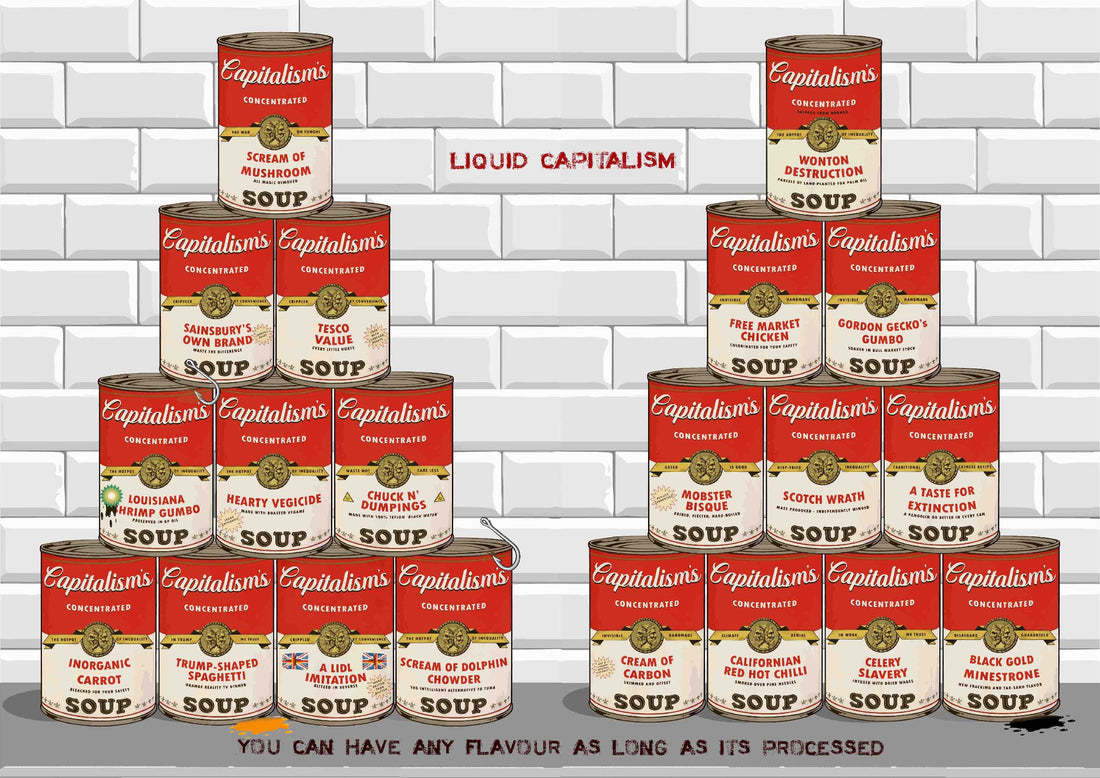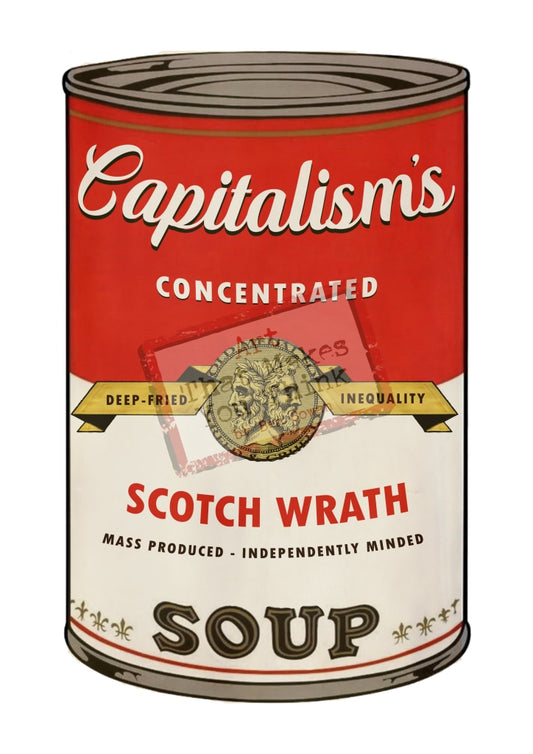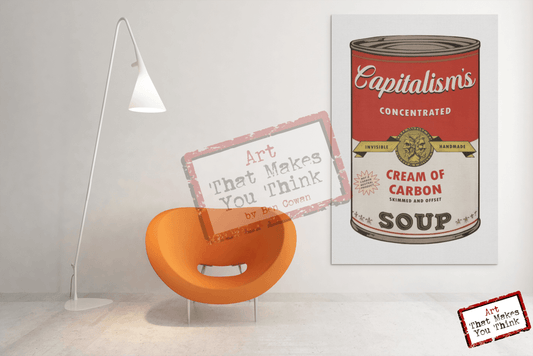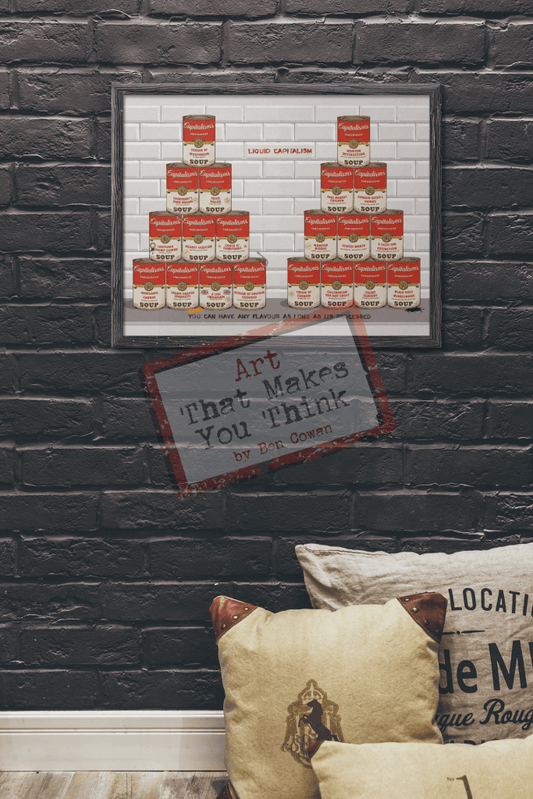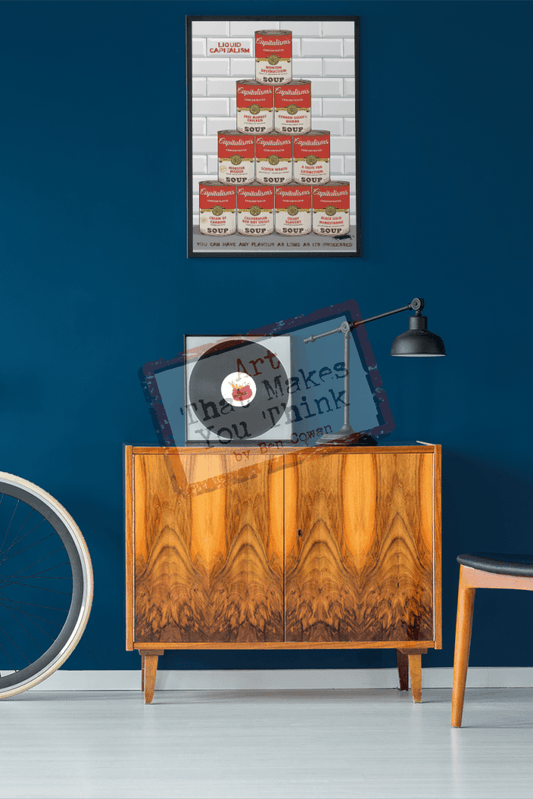When Andy Warhol first started painting Campbell soup cans in his studio, he was surrounded by them. He painted what he saw - his lunch. He loved money and was drawn to A-list movie stars; so he painted soup cans, dollar bills and Monroe. What he didn't do, was to satirise the terrible impact of all-pervasive capitalism. That’s my job.
Warhol produced 32 canvases for his first solo exhibition in New York, one for each variety of Campbell's condensed soup, who incredibly sold 4 in every 5 tins in the USA at the time. They were 'mass produced' using templates to reflect what made them so ubiquitous, so that imperfections were systematically replicated. He wanted to do what he thought the abstract expressionists had failed to do, put the splendour of modernity in a positive light.
Many critics in the US found his packaging subject matter, which mimicked advertising, to be vulgar and banal. This was during the Cold War. In Europe, some thought he was subverting mass commercialism and consumption, some still do. At the time, the culture of mass consumption of products and culture must have been exciting. Now modern civilisation itself is banal.
Marcel Duchamp said that, “If you take a Campbell’s soup can and repeat 32 times, you are not interested in the retinal image. What interests you is the concept that wants to put 32 soup cans on canvases in a gallery.” It was the whole set that became a panorama, which gave the art project meaning; i.e. the ubiquity of mass production and consumption. Which is why the curator, Irving Blum recreated the set and bought back those individual sales from the exhibition, including from Dennis Hopper.
In my collection, I am exploring that the reverse is true: the meaning comes less from the panorama, but in the detail of each can. I want to play with that numbed retinal image; take a second pass within compositions like Pyramid Selling, and notice the nuances of each soup can. It is here on each label where the meaning starts to emerge, telling stories about the brutalities of modern capitalism.
Like Warhol’s repetition of cans on canvases, the all-pervasive nature of the capitalist system means that we don’t see it. We have become numbed to the violence and its impacts because of the conveniences it brings, whilst it cripples us. So, my labels read: Scream of Chicken (batteried for life in tiny cages), or Scream of Dolphin Chowder (caught in colossal trawler nets), California Red Hot Chilli (forest fires caused by climate change), or simple Celery Slavery, where dried wages are the consequence of people being assailed with predatory marketing to buy things that they don’t need, with money they don’t have, and by flatlining salary growth and mounting debts for ordinary working people.
So, art that makes you think, but also laugh, don’t forget that. If you own one of my Liquid Capitalism prints, it will be sure to start conversations. Whether you cast the first stone or not. You can collect individual prints or canvases, and build up to the full set of 32! Pyramid Selling, with its ten-can unity, has a certain beauty, which accompanies the protestations of truth held within. It represents the invisible hand of the markets that guides everything into place. This becomes a label motto for the cans themselves: Invisible Handmade.
This is no farmer’s market.
This is not a soup can.
[insert joke]
Ben Cowan
Art That Makes You Think

